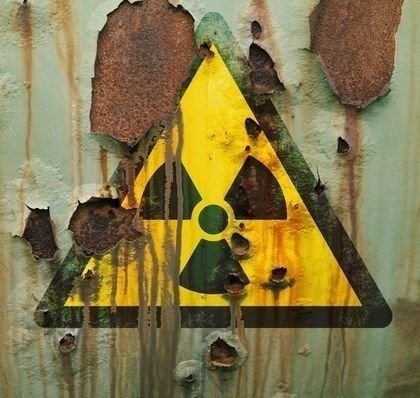Читати книгу - "Постріл із глибин"
Шрифт:
Інтервал:
Добавити в закладку:
Messimer, Dwight R. The Merchant U-Boat. Annapolis, MD: Naval Institute Press, 1988.
Mitchell, S. Weir. Doctor and Patient. Philadelphia: J. B. Lippincott, 1888.
———. Fat and Blood: And How to Make Them. Philadelphia: J. B. Lippincott, 1877.
———. Wear and Tear or Hints for the Overworked. Philadelphia: J. B. Lippincott, 1897.
Morton, Leslie. The Long Wake. London: Routledge and Kegan Paul, 1968.
Neureuther, Karl, and Claus Bergen, eds. U-Boat Stories. Uckfleld, East Sussex, UK: Naval and Military Press, 2005.
Niemôller, Martin. From U-Boat to Pulpit. Chicago: Willett, Clark, 1937.
Paine, Judith. “Avon Old Farms School: The Architecture ofTheodate Pope Riddle.” Perspecta 18 (1982): 42-48.
Preston, Diana. Lusitania: An Epic Tragedy. New York: Walker, 2002. Ramsay, David. “Blinker” Hall: Spymaster. Gloucestershire, UK: History Press, 2009.
———. Lusitania: Saga and Myth. New York: W. W. Norton, 2002.
Rintelen, Franz von. The Dark Invader: Wartime Reminiscences of a German Naval Officer. New York: Penguin, 1939.
Ritter, Gerhard. The Schlieffen Plan. Translated by Andrew and Eva Wilson.
New York: Frederick A. Praeger, 1958.
Rössler, Eberhard. The U-Boat. Translated by Harold Erenbeig. London: Arms and Armour Press, 1981.
Rossano, Geoffrey L. Stalking the U-Boat: U. S. Naval Aviation in Europe During World War I. Gainesville: University Press of Florida, 2010. Sargent, George H. Lauriat’s, 1872—1922. Boston: privately printed, 1922. Schachtman, Tom. Edith and Woodrow. New York: G. P. Putnam’s Sons, 1981. Scheer, Reinhard. Germany’s High Sea Fleet in the World War. 1919. Reprint, New York: Peter Smith, 1934.
Seymour, Charles. The Intimate Papers of Colonel House. Vols. 1 and 2. Boston: Houghton Mifflin, 1926.
Sims, William Sowden. The Victory at Sea. 1920. Reprint, Annapolis: Naval Institute Press, 1984.
Smith, Gene. When the Cheering Stopped: The Last Years of Woodrow Wilson. New York: William Morrow, 1964.
Smith, Sharon Dunlap. Theodate Pope Riddle: Her Life and Architecture. 2002. www.valinet.com/~smithash/theodate/.
Soames, Mary. Clementine Churchill: The Biography of a Marriage. Boston: Houghton Mifflin, 1979.
Spiegel, Edgar von. The Adventures of the U-202. New York: Century, 1917. Google Book.
Starling, Edmund W. (as told to Thomas Sugrue). Starling of the White House.
1916. Reprint, Chicago: People’s BookClub, 1946.
Steinberg, Jonathan. Yesterday’s Deterrent: Tirpitz and the Birth ofthe German Battle Fleet. New York: Macmillan, 1965.
Sullivan, Mark. Our Times, 1900—1925. New York: Charles Scribner’s Sons, 1936.
Szefel, Lisa. “Beauty and William Braithwaite.” Callaloo 29, no. 2 (Spring 2006): 560-86.
Thomas, Lowell. Raiders of the Deep. Garden City, NY: Garden City Publishing, 1928.
Thomson, George Malcolm. The Twelve Days: 24 July to 4 August 1914. London: Hutchinson, 1964.
Trapp, Georg von. To the Last Salute: Memories of an Austrian U-Boat Commander.
Translated by Elizabeth M. Campbell. Lincoln: University of Nebraska Press, 2007.
Trommler, Frank. “The Lusitania Effect: America’s Mobilization Against Germany in World War I.” German Studies Review 32, no. 2 (May 2009): 241-66.
Tuchman, Barbara W. The Zimmermann Telegram. 1958. Reprint, New York: MacMillan, 1966.
“The Use of Neutral Flags on Merchant Vessels of Belligerents.” American Journal of International Law 9, no. 2 (April 1915): 471—73.
U. S. Navy Department. German Submarine Activities on the Atlantic Coast of the United States and Canada. Washington, DC: GPO, 1920.
Valentiner, Max. La terreur des mers: Mes aventures en sous-marin, 1914— 1918. Paris: Payot, 1931.
Villard, Oswald Garrison. Fighting Years: Memoirs of a Liberal Editor. New York: Harcourt, Brace, 1939.
Walker, Alastair. Four Thousand Lives Lost: The Inquiries of Lord Mersey into the Sinkings of the Titanic, the Empress of Ireland, the Falaba, and the Lusitania. Stroud, Gloucestershire, UK: History Press, 2012.
Ward, Maisie. Father Maturin. London: Longmans, Green, 1920.
Weinberg, Andrew D. “ Hypothermia.” Annals of Emergency Medicine 22, pt. 2 (Feb. 1993): 370-77.
Weir, Gary E. Building the Kaiser’s Navy. Annapolis, MD: Naval Institute Press, 1992.
Weizsacker, Ernst von. Memoirs of Ernst von Weizjsacker. London: Victor Gollancz, 1951.
Wilson, Edith Bolling. My Memoir. 1938. Reprint, New York: Bobbs-Merrill, 1939.
Wood, M. G., D. I. Smith, and M. R. Hayns. “The Sinking of the Lusitania: Reviewing the Evidence.” Science and Justice 42, no. 3 (2002): 173—88.
Про автора
Ерік Ларсон — автор документальних книг, серед яких «Диявол у Білому місті», «Уражений блискавкою» та інші. Він писав для великої кількості журналів, працював у Wall Street Journal і Time. Живе частково в Нью-Йорку, частково в Сіетлі разом із дружиною.
Інтерв’ю з Еріком Ларсоном
— Для своїх книг Ви часто обираєте захопливі історичні події, про які більшість із нас ніколи й не чула. Про «Лузитанію» ж ми всі знали доволі багато. Чому саме Ви вирішили створити книгу про її останню подорож?
— Історія «Лузитанії», як і історія «Титаніка», надзвичайно цікава, і я відчув, що зможу зробити тут щось таке, чого ще ніхто не робив. Крім того, мене захопила можливість попрацювати з таким багатим фондом матеріалу: шифрувальні книги, перехоплені телеграми, навіть неймовірно пристрасні листи між Вудро Вільсоном і жінкою, у яку він закохався після смерті дружини. Усе це дозволило створити справжній морський трилер про реальне життя. Для мене робота над цією книгою стала дослідженням потенціалу матеріалу з точки зору інтриги в документалістиці. Крім того, уже не за горою була сота річниця катастрофи — 7 травня 2015 року. Читаючи більше на цю тему, я зрозумів: усе, що люди знають (або думають, що знають) про «Лузитанію», — неправда, і я сам не виняток. Несамовита драматичність цієї трагедії просто захопила мене.
— Що саме означає фраза «мертвий кільватер»?
— Мертвий кільватер — це морський термін, яким називають слід, котрий ще довго залишається на поверхні води після проходу корабля — чи торпеди. Але в цій історії назва дуже влучно описує те, що відбувалося, — читач згодом зрозуміє.
— Німеччина чітко дала зрозуміти, що всі пасажири на борту британських кораблів подорожують «на свій ризик». Проте екіпаж і пасажири «Лузитанії» залишаються абсолютно спокійними — принаймні на початку подорожі. Чому всі були такі впевнені, що
Увага!
Сайт зберігає кукі вашого браузера. Ви зможете в будь-який момент зробити закладку та продовжити читання книги «Постріл із глибин», після закриття браузера.

